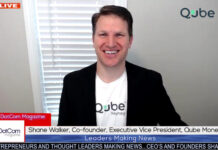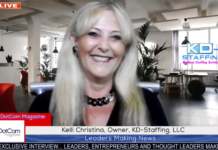Social media optimization (SMO) is evolving rapidly, and one of the primary driving forces behind this change is artificial intelligence (AI). As businesses and brands strive to enhance their online presence, understanding how AI will change social media optimization becomes crucial. AI technologies are reshaping how content is created, targeted, and analyzed, making it easier for businesses to connect with their audiences effectively. In this article, we will explore ten key points you must know about how AI will change social media optimization, delving into the transformative effects it will have on strategies, tools, and outcomes.
1. Enhanced Audience Targeting
One of the most significant impacts of AI on social media optimization is enhanced audience targeting. Traditionally, marketers relied on demographic data to reach their target audiences. However, AI technologies allow for a more granular approach by analyzing vast amounts of data, including user behavior, interests, and preferences. With machine learning algorithms, brands can identify patterns in user data, enabling them to create highly targeted campaigns that resonate with specific audience segments. This level of precision not only increases engagement rates but also boosts conversion rates, making social media efforts more effective.
2. Content Personalization at Scale
In an era where consumers crave personalized experiences, AI will enable brands to deliver customized content at scale. By analyzing user data, AI can determine what types of content resonate most with specific audiences, allowing marketers to tailor their posts accordingly. Whether it’s through personalized recommendations, targeted advertisements, or dynamic content that changes based on user interactions, AI-driven personalization will enhance user engagement and loyalty. As social media platforms continue to refine their algorithms, brands that leverage AI for content personalization will have a competitive edge.
3. Automated Content Creation
The demand for fresh and engaging content is never-ending in the fast-paced world of social media. AI tools can assist marketers by automating content creation, allowing brands to maintain a consistent presence across multiple platforms. Natural language processing (NLP) algorithms can generate written content, while AI-powered graphic design tools can create eye-catching visuals. Although AI-generated content may lack the personal touch of human creativity, it can significantly reduce the time and resources needed for content production, enabling marketers to focus on strategy and optimization.
4. Predictive Analytics for Trend Forecasting
AI’s predictive analytics capabilities will play a pivotal role in social media optimization by helping brands anticipate trends and consumer behavior. By analyzing historical data, AI algorithms can identify emerging trends and patterns, allowing marketers to adapt their strategies proactively. For instance, brands can leverage AI to determine which topics or formats are gaining traction among their target audiences, enabling them to create timely and relevant content. This forward-thinking approach to social media marketing will empower businesses to stay ahead of the competition and capitalize on emerging opportunities.
5. Improved Engagement through Chatbots
Customer engagement is crucial for successful social media optimization, and AI-powered chatbots are revolutionizing how brands interact with their audiences. Chatbots can provide instant responses to customer inquiries, engage users in conversations, and guide them through the sales funnel. This level of automation not only enhances user experience but also frees up human resources to focus on more complex tasks. As chatbots become more sophisticated through machine learning, their ability to understand and respond to user intent will improve, leading to higher engagement rates and customer satisfaction.
6. Advanced Sentiment Analysis
Understanding audience sentiment is vital for effective social media optimization. AI tools can analyze social media conversations and comments to gauge how users feel about a brand, product, or campaign. Through advanced sentiment analysis, marketers can gain valuable insights into audience perceptions, enabling them to adjust their strategies accordingly. For example, if sentiment analysis reveals negative feedback about a specific product, brands can address the issue in real-time, demonstrating responsiveness and commitment to customer satisfaction. This data-driven approach will foster stronger relationships between brands and their audiences.
7. Optimized Advertising Campaigns
AI will significantly change how brands approach advertising on social media platforms. With its ability to analyze user behavior and preferences, AI can optimize ad targeting, placement, and bidding strategies. This means that brands can maximize their return on investment (ROI) by ensuring their ads reach the right audiences at the right times. Additionally, AI algorithms can continuously analyze campaign performance, allowing for real-time adjustments that enhance effectiveness. By leveraging AI-driven advertising strategies, brands can achieve better results and stay competitive in the ever-changing landscape of social media marketing.
8. Enhanced Visual Content Recognition
Visual content is a dominant force on social media, and AI technologies are making it easier for brands to leverage images and videos effectively. Through image and video recognition, AI can analyze visual content to identify trends, track brand mentions, and even gauge user engagement levels. This capability allows marketers to understand which visual elements resonate with their audiences and optimize their content accordingly. By harnessing AI for visual content recognition, brands can create more compelling and shareable posts, increasing their reach and engagement on social media platforms.
9. Streamlined Social Media Management
Managing multiple social media accounts can be a daunting task for brands, but AI-driven tools are streamlining this process. From scheduling posts to monitoring engagement, AI can automate many aspects of social media management. Additionally, these tools can provide insights into optimal posting times, helping brands reach their audiences when they are most active. By simplifying social media management, AI enables marketers to focus on crafting creative content and developing innovative strategies, ultimately improving overall optimization efforts.
10. Continuous Learning and Adaptation
AI’s ability to learn and adapt over time is one of its most valuable features in social media optimization. Machine learning algorithms can continuously analyze performance data, identifying what works and what doesn’t. This iterative learning process allows marketers to refine their strategies based on real-time feedback, ensuring that their social media efforts remain effective in a dynamic environment. As AI technologies continue to evolve, brands that embrace this continuous learning mindset will be better equipped to navigate the complexities of social media optimization and achieve sustainable success.
Conclusion
The impact of AI on social media optimization is profound and multifaceted. From enhanced audience targeting and content personalization to automated content creation and predictive analytics, AI is transforming how brands engage with their audiences. As businesses increasingly adopt AI technologies, understanding these key points will be essential for staying competitive in the digital landscape. Embracing AI-driven strategies not only optimizes social media efforts but also fosters deeper connections with consumers, ultimately driving growth and success in the ever-evolving world of social media.As AI continues to evolve, marketers must remain adaptable and willing to integrate new technologies into their strategies. By doing so, they can harness the full potential of AI in social media optimization and achieve remarkable results in their marketing efforts.

















